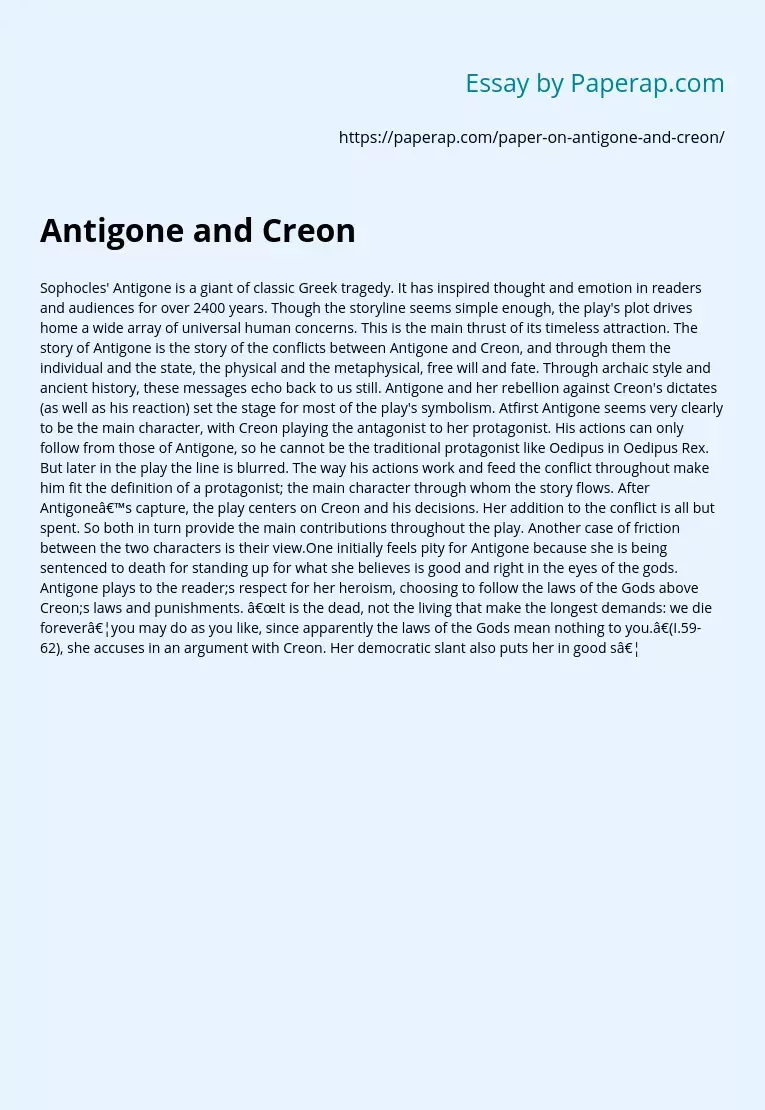Antigone and Creon
Sophocles’ Antigone is a giant of classic Greek tragedy. It has inspired thought and emotion in readers and audiences for over 2400 years. Though the storyline seems simple enough, the play’s plot drives home a wide array of universal human concerns. This is the main thrust of its timeless attraction. The story of Antigone is the story of the conflicts between Antigone and Creon, and through them the individual and the state, the physical and the metaphysical, free will and fate.
Through archaic style and ancient history, these messages echo back to us still. Antigone and her rebellion against Creon’s dictates (as well as his reaction) set the stage for most of the play’s symbolism. Atfirst Antigone seems very clearly to be the main character, with Creon playing the antagonist to her protagonist. His actions can only follow from those of Antigone, so he cannot be the traditional protagonist like Oedipus in Oedipus Rex. But later in the play the line is blurred.
The way his actions work and feed the conflict throughout make him fit the definition of a protagonist; the main character through whom the story flows. After Antigone’s capture, the play centers on Creon and his decisions. Her addition to the conflict is all but spent. So both in turn provide the main contributions throughout the play. Another case of friction between the two characters is their view.One initially feels pity for Antigone because she is being sentenced to death for standing up for what she believes is good and right in the eyes of the gods.
Antigone plays to the reader;s respect for her heroism, choosing to follow the laws of the Gods above Creon;s laws and punishments. “It is the dead, not the living that make the longest demands: we die forever…you may do as you like, since apparently the laws of the Gods mean nothing to you.”(I.59-62), she accuses in an argument with Creon. Her democratic slant also puts her in good s…
Antigone and Creon. (2019, Oct 09). Retrieved from https://paperap.com/paper-on-antigone-and-creon/

